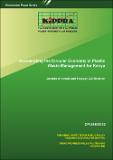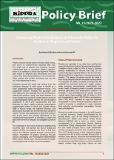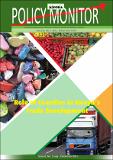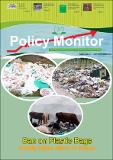| dc.description.abstract | The transition to a circular economy has gained global momentum, and Kenya is starting to embrace this concept, led by the private sector and government policy frameworks. Plastic waste poses a significant environmental challenge in Kenya, with only 8% of collected plastics being recycled. This study examines the policy, legislative frameworks, and technological gaps along the plastic value chain in the transition to a circular economy. The plastic value chain encompasses design, production, product use, disposal, segregation/sorting, collection, reuse, and recycling. The findings reveal that existing waste management policies in Kenya are fragmented and fail to fully address the entire plastic value chain. Regulations such as the Environmental Management Coordination Act (EMCA) focus solely on plastic flat bags, neglecting other plastic categories. Counties, responsible for waste management, are also lacking in relevant laws and policies. Technological advancements in plastic circularity are limited, primarily focused on sorting and recycling processes. Recommendations include harmonizing existing waste management policies to address plastic circularity, expediting the development of plastic circular economy policies, and promoting county-level legislation aligned with the National Sustainable Waste Management Act 2022. Reintroducing incentives for plastic recycling, such as tax exemptions on imported technologies and equipment, is also advised. | en |




